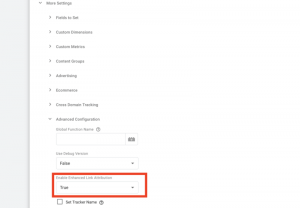
You recently got hired or promoted and you’re in a new role. How exciting!
It can be tough to adjust to this new role and potentially new environment, the first piece of advice is to understand that it’s normal to be nervous.
It’s an exciting new challenge, but there will be struggles, whether you like it or not.
The key more than anything is to change your mindset and get into a new way of approaching work.
Once you take some time to step back, you’ll be in a better position to plan and avoid these challenges as much as possible.
You’ll see with most of the challenges that they’re internal, meaning only you can fix them.
Here are 10 challenges that every new manager will face.
10 Challenges That You’ll Face
It can be hard being a manager, especially if it’s your first time. Even if you’ve been a manager before but you’ve been promoted or reassigned, you’ll find that there are new things being thrown at you all the time.
One of you key responsibilities is improving employee satisfaction among your team, while completing your own tasks.
Failure To Set Clear Goals And Expectations
As a new manager, your main task is to motivate the employees under you. It’s hard to be motivated if you have no clear directions.
Often, a lack of clarity on the job causes confusion between employee and manager, leading to disappointment on both sides.
The best thing you can do to fix all of this is to set clear goals that align everyone on the team.
Objectives and Key Results have been the best thing I’ve seen to align everyone around a shared goal. What’s great about this is the “key results” set expectations very clearly.
Both employees and managers have measurable results, making it easier to tell if they hit their mark or not.
Free Bonus: Download the complete guide to setting goals for your employees.
Poor Time Management
This is tough one for new managers.
Now in addition to managing your own tasks, you have to manage an entire team, putting out fires and dealing with their problems.
Trying to juggle all of this can easily become overwhelming.
The best piece of advice for new managers is to block time off on your own calendar.
Make it clear to employees that there are certain times that are only for you.
My boss (Dan) has continuously impressed me with how he manages his time. He always makes time for his employees and their problems, but still manages to get an unusual amount of work done.
He practices the Pomodoro technique, and everyone knows when he has his red Pomodoro headphones on not to disturb him.

A very simple hack that I like to do is actually block time off on my calendar with fake meetings so that I know that I’m already “booked” for that time.
Unclear Or Inconsistent Communication
One of the easiest ways to lose respect from employees is to be inconsistent in your communication and messaging.
Employees need to know that they can trust what you’re saying to be true.
Inconsistent communication is relatively easy to fix, but unclear communication can be an even bigger problem.
Work on your messaging, make it as crystal clear as possible. I’m always reminded of Jason Fried’s wise words from the book Getting Real:
If you are trying to decide between a few people to fill a position, always hire the better writer. It doesn’t matter if that person is a designer, programmer, marketer, salesperson, or whatever, the writing skills will pay off. Effective, concise writing and editing leads to effective, concise code, design, emails, instant messages, and more.
That’s because being a good writer is about more than words. Good writers know how to communicate. They make things easy to understand. They can put themselves in someone else’s shoes. They know what to omit. They think clearly. And those are the qualities you need.
Pressure To Perform
One of the most nerve racking things about being a new manager is the pressure to perform.
You were just given an incredible opportunity and now you want to show that you were worth it.
Just relax. Rome wasn’t built in a day.
Make sure to set clear expectations with your boss, and more importantly, yourself. You won’t get amazing results right away, it will take time.
Slow and steady wins the race, take your time to plan properly and set yourself up for success.
Shifting From Coworker To Boss
Picture this – you’re close with your coworkers and suddenly you’re promoted to being their manager, you’re no longer “one of them.”
This is a common situation and can be pretty awkward.
How do you tell your friends what to do without it affecting your friendship?
It’s a tough question. Being tough with your friends is not an easy thing to do, but you need to learn how to separate work from friendship.
Understand that when you’re at work, it’s business time and you need to be the boss, but when you’re out of work, that’s your personal life.
Hiring
Hiring is tough.
Hiring is especially tough for new managers that have never done this before.
This might be your hardest challenge as a new manager, because bringing someone onto the team is a big decision.
Luckily, there are many resources online for recruiting, but don’t be shy to ask other people in your company, from other managers to the HR team.
The best way to hire someone is through a work sample test, meaning you give them a small project to see how well they perform, communicate, and interact with the team.
Many inexperienced people involved with hiring will generally go with “gut feeling”, but this is a bad idea.
What has been proven to work instead, is a structured interview, where candidates are asked the same set of questions with specific ways of evaluating the responses.
There are two kinds of structured interviews: behavioral and situational.
Behavioral interviews look at past performance (“Tell me about a time when…”), whereas situational interviews are hypothetical (“What would you do if…”)
A smart manager will dive deep and ask lots of follow up questions.
Firing
Even more difficult than hiring is firing an employee.
This is a tough one, and it’s hard to find perfect advice for this.
The best advice is if you make it a team decision. You should be meeting with your team regularly for one-on-one sessions.
During those one-on-ones, get personal and ask employees what they think of certain colleagues. You’ll naturally see patterns come up.
It’s important to give everyone a chance and work with them to help them improve, but at a certain point you’ll likely face this challenge.
Solving Other People’s Problems
Managers don’t get nearly enough credit for all that they do.
They’re part manager, part psychologist. Inevitably, you’ll start receiving complaints from employees and start having to deal with their problems.
Step one is to accept it and get ready for it.
Step two is to attack any issue early on before it becomes a serious problem. Monthly one-on-ones can be a great way to make sure a problem doesn’t last for too long.
Getting The Team To Be Productive
A smart manager will understand that the key to their success is to make their team as productive as possible.
This can be a challenge because everyone is different, requires different levels of attention, and works in different ways.
What you need to do as a manager, is create an environment that’s good for everyone. Some people like working later, some earlier, some people like being told what to do, some people like being left alone.
Find out what works best and adjust accordingly.
Not Asking For Help
Many first-time managers will want to prove that they don’t need any help – big mistake.
Don’t be shy to ask around for help. Ask HR about training that you might not know about, ask about expensing training courses online, whatever it takes to make you and your team the best!
Learn how to give better feedback to employees and set meaningful goals.
Tips To Ensure Success As A New Manager
Change your Focus
This is the most important piece of advice for ensuring success as a new manager.
In your old role as an employee, your number one focus was on accomplishing your tasks. Now, your number one focus is on helping others accomplish their tasks.
Shifting your mindset to understand this is the best tip for new managers.
Learn A Lot
Always be learning.
Use monthly one-on-ones to learn more about your team and help everyone grow.
Go to networking events to learn more about your job and connect with others. Be active in Linkedin groups to learn more about your industry.
Again, it’s about changing your mindset into one of constant learning.
Take Your Time
When you first become a manager, you’ll want to show everyone that you’re in charge. Instead, take the time to fully understand the dynamics of the team.
Be patient, you’ll get there eventually.
Find A Mentor
Find someone who’s been there before and pick their brain. If there’s noone to help in the company, check out the website Clarity.fm, it’s a marketplace to help you connect with experts.
It could be a great resource to get help.
Free Bonus: Download the complete guide to setting goals for your employees.
What Are Some Challenges That You’ve Faced?
Have you been there before? Any tips for new managers that you can share with us?
Business & Finance Articles on Business 2 Community(113)









